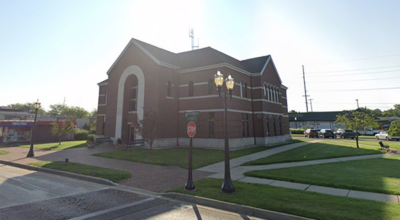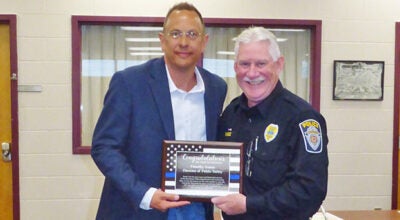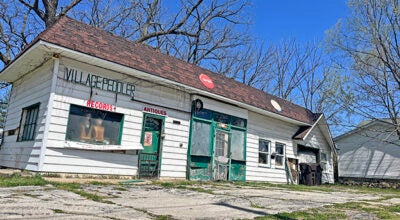Part 2: Upton shares thoughts on the Keystone Pipeline
Published 8:44 am Tuesday, December 2, 2014
Fresh off his victory in the November election, Congressman Fred Upton stopped by Leader Publications last week for a discussion about several current issues facing Michigan and the nation.
Over the next few days, we will publish his answers to our questions about everything from roads to immigration reform to the racial tension in Ferguson, Missouri.
Q: What are your thoughts on the recent failure of Keystone KL Pipeline legislation to pass in the Senate?
It is going to come back next year. It was a little bit of an election ploy by the Senate Energy Chairwoman Mary Landrieu.
We will call it a ‘hailmary’ but she got sacked with a loss on fourth down when she failed to get 60 votes — one vote short. It’s amazing that she couldn’t get 60 to try and help her get to the Senate run-off line, which is Dec. 6.
It has been bi-partisan. We moved it through our committee a couple times now. John Dingell voted for it the first time, but not the last. It is a privately built pipeline. Canada is going to produce this oil no matter what. It is either coming here to be refined and used or it is going overseas. If we choose to continue to say ‘no’ it will go overseas. We already import oil from Canada from oil sands that was approved a long time ago. I believe in supply and demand. Right now oil prices are lower in large part because we’ve had greater production here on private lands in the U.S. and I think that is a good thing.
We’ve upgraded pipeline standards. The Enbridge line is completely replaced and complete from Detroit to Niles. They replaced the whole line at a cost of more than $2 billion — all meeting the higher safety standards that the Upton bill required when President Obama signed it into law three years ago. That is a good thing.
It is cheaper and the carbon footprint is less than if you are sending it from truck or by rail. It is safer. Yes, we’ve had accidents and we had a bad one a couple years ago, which prompted the pipeline safety bill — a bi-partisan bill — that Obama signed. And frankly it created a lot of jobs here in Southwest Michigan. We are all better for it. It is not a bad thing.
Keystone will come back. The question is does Obama veto it? He is running out of excuses. It has been six years. They’ve changed the rout and done a whole number of different things — they are even going to have higher standards. The private sector has spent billions getting ready for it. Frankly, I’d rather refine here in this country with higher and better environmental standards than sending it somewhere else where they don’t have those same standards.
Q: Do you think the 2010 Enbridge Kalamazoo River spill has affected the public’s support for the Keystone Pipeline here in your district?
It broke in Calhoun County. I was there literally the next day looking at it. We saw that there were a number of problems there with the existing law, which was changed. Under the old law, when there was a break you had to inform the pipeline safety folks in a timely manner. But what is timely? It is all relative. So, we wrote the new law and said it had to be within an hour. If it is not, you will get a pretty heavy-duty fine. So, new standards on pipe, automatic shut-off valves, higher fines — it was a significant improvement to the existing law and it passed with more than 400 votes.
Oil prices are driven by supply and demand. When you can get it from an ally — the Canadians, our best friend in the world — versus the Middle East or Venezuela, we are far better off getting it from the Canadians, especially if you can refine it here. It is more jobs.
The folks that don’t want to use oil at all — that is not what our economy is today. Yes, we’ve made improvements. I’ve supported higher mileage standards and other things, but again, the most vulnerable are the ones still driving a 1995 car and getting 12 miles a gallon, not the 35 or 40 that some of the vehicles today can get. They are paying an even heavier price than the folks at the higher end of the economic scale.






